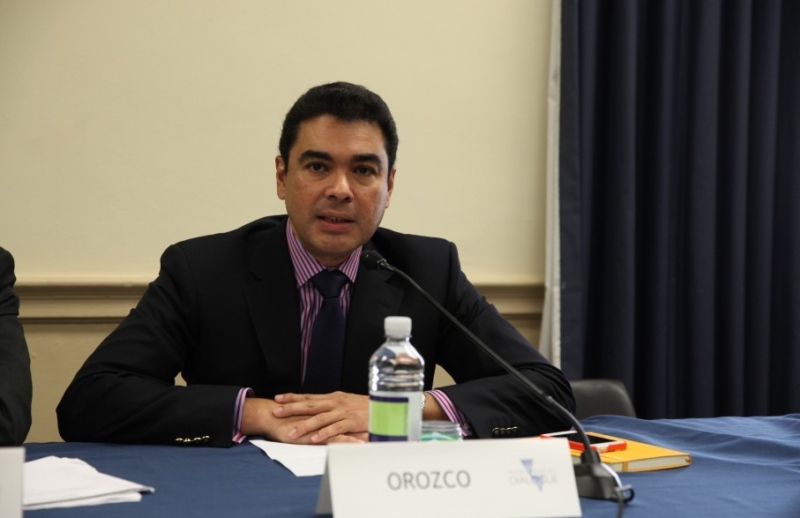Exiles are Keeping the Faith
Why do Haitians leave their homeland? How do their leaders interact with government and civic institutions in their new localities?
On February 24th, the Inter-American Dialogue held its annual event on Remittances to Latin America and the Caribbean, this time sharing estimates and relevant trends for remittances growth in 2014.
Manuel Orozco, senior fellow at the Dialogue, shared the main findings of a new report on remittance flows to the region, which grew modestly in 2014. The report looks at variation of remittance flows among countries, and the impact of a number of key factors, including international relations among countries, migration policies, demographics, and economic growth in both home and host countries. It also takes a closer look at countries of particular interest due to recent developments, including Cuba. Orozco foresees continued growth for 2015.
Dilip Ratha (KNOMAD/The World Bank) shared his comments and insights on relevant trends affecting the current global remittance market, including economic growth among countries, oil prices and their impact on labor, exchange rates, and the impact of conflict on migratory movements (including political, social and environmental emergencies). He also highlighted the role of technology, especially mobile phones, and its ability to expand the remittance market.
Ronald Schwartzman (UniTeller/Banorte) offered comments from the perspective of the remittance industry itself, addressing the increasing regulatory burden placed on Money Transfer Organizations (MTOs) in the US and the impact this burden has on remittance costs. He underlined the common goals of the remittance industry and the development community of expanded financial inclusion and transparent practices that ensure remittance flows to all countries.
After these comments, the audience and panel shared a rich discussion regarding relevant issues for remittances and development today. Topics included the roles of legislation, financial institutions and government agencies in charge of supervision, the current discussion on pricing, and the important interaction between remittances and development objectives.
This event was held as part of the Dialogue’s Remittance Industry Observatory, an initiative that seeks to share information and analysis about the remittance market.
Why do Haitians leave their homeland? How do their leaders interact with government and civic institutions in their new localities?
What do the election results mean for hemispheric policy and foreign relations?
The earthquake in Haiti has exacerbated an existing distress during the international recession and increased uncertainty of what to do and how to help.
 Inter-American Dialogue
Inter-American Dialogue